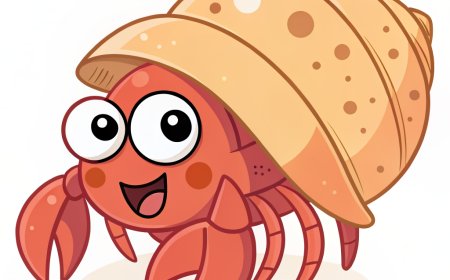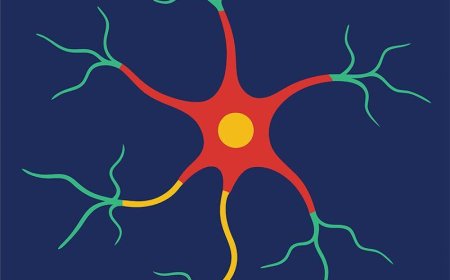How the Urinary System Filters Blood and Forms Urine
Learn how your kidneys filter blood and how urine is made. Discover the role of nephrons, reabsorption, and how your body cleans itself.
💦 How the Urinary System Filters Blood and Makes Urine
🧠 Introduction: The Science Behind Your Body’s Liquid Clean-Up
Your body has a built-in cleaning system that’s running all the time—even while you sleep. Every minute, nearly one quart of your blood passes through your kidneys to be filtered. The result? Clean, balanced blood flows back into your body while waste and extra water are turned into urine and removed. This incredible process happens automatically, thanks to the teamwork of your urinary system, especially your kidneys and nephrons.
In this article, you’ll learn how the urinary system:
Filters blood to remove waste
Creates and concentrates urine
Sends urine through the urinary tract to be removed from the body
Let’s explore the amazing process your body uses to clean itself from the inside out.
🧬 The Kidneys: Natural Blood Filters
Your two kidneys are like high-powered, automatic filters. They clean your blood to remove harmful substances like urea, excess salts, toxins, and extra water. Blood enters each kidney through a large blood vessel called the renal artery, and leaves through the renal vein after it’s been filtered.
Inside each kidney are over one million nephrons—tiny filtering units that do the hard work. These microscopic structures clean your blood one drop at a time. Each nephron is made up of a glomerulus (a cluster of tiny blood vessels) and a tubule that processes the waste.
Even though they’re small, your kidneys filter about 50 gallons of blood every single day, producing 1–2 quarts of urine daily.
🔄 Step-by-Step: How Urine Is Made
The process of making urine has three main steps: filtration, reabsorption, and secretion. Let’s look at each one in detail.
1. Filtration
The first step happens in the glomerulus of the nephron. As blood flows through this tiny cluster of capillaries, water, urea, salts, glucose, and other small molecules are squeezed out of the blood and into a structure called Bowman’s capsule. Larger molecules like proteins and red blood cells stay in the blood because they’re too big to pass through.
At this stage, the fluid collected is called filtrate, not urine yet. It still contains valuable substances your body might need to keep.
2. Reabsorption
Next, the filtrate travels through the renal tubule, a long twisting tube where useful materials are reabsorbed. This includes things like:
Water (so you don’t get dehydrated)
Glucose (your body’s fuel)
Certain salts and minerals
These substances return to your bloodstream through nearby capillaries. This step makes sure your body keeps what it needs and only gets rid of true waste.
3. Secretion
In the final step, any leftover waste, such as certain drugs, acids, or toxins that weren’t filtered earlier, are added to the fluid. This process fine-tunes the composition of urine.
After secretion, the fluid officially becomes urine, which now contains:
Urea
Excess water
Salts and minerals
Toxins or drugs your body wants to eliminate
🚽 Where Does the Urine Go Next?
Once the urine is made in the nephrons, it flows into small collecting ducts that merge into larger tubes inside the kidneys. Eventually, it reaches a funnel-shaped area called the renal pelvis, which drains urine into the ureters.
The ureters are muscular tubes that use wave-like movements (called peristalsis) to push urine down into the bladder, where it will be stored until it’s ready to leave your body through the urethra.
This journey from blood to bladder takes place silently, many times a day, and it’s one of the most important systems keeping you alive and well.
⚖️ The Importance of Balance
Besides removing waste, the filtration process helps maintain homeostasis, or balance in the body. Your kidneys are constantly checking and adjusting:
Water levels – so you don’t get too hydrated or too dry
Salt and mineral levels – like potassium, calcium, and sodium
pH level – to prevent your blood from becoming too acidic or too basic
Blood pressure – through hormone release and fluid control
If your kidneys didn’t do this job, even one meal or drink could throw off your body’s balance and make you sick.
🧠 Vocabulary List
Term Definition
Kidneys Organs that filter blood and make urine
Nephron Tiny filtering unit inside the kidney
Glomerulus A bundle of capillaries that starts the filtration process
Bowman’s capsule A cup-shaped structure that collects filtered fluid
Renal tubule A tube where water and nutrients are reabsorbed
Filtrate The fluid collected before it becomes urine
Reabsorption When useful materials are returned to the bloodstream
Secretion The process of adding more waste to the urine
Urea A waste product from breaking down proteins
Peristalsis Muscle movement that pushes urine through ureters
❓ Interactive Quiz: Urine-Making Challenge
1. What is the main function of nephrons?
A. Store urine
B. Create blood cells
C. Filter blood and form urine
D. Pump oxygen
2. What is filtrate?
A. Finished urine
B. Blood that hasn’t been filtered
C. Fluid collected before becoming urine
D. Salt removed from the kidneys
3. What happens during reabsorption?
A. Waste is added to the urine
B. Water and nutrients are returned to the blood
C. Blood leaves the body
D. Urine enters the bladder
4. Which part carries urine to the bladder?
A. Urethra
B. Renal artery
C. Ureters
D. Capillaries
5. What does peristalsis do?
A. Stores urine
B. Pushes urine through the ureters
C. Filters blood
D. Heats the kidneys
🟢 Answers: 1-C, 2-C, 3-B, 4-C, 5-B
⭐ Kid-Friendly Summary
Your kidneys clean your blood using special parts called nephrons. First, the nephrons filter out water, salts, and waste. Then, they reabsorb the good stuff your body still needs. Lastly, they add any leftover waste before sending the urine down to the bladder. This entire system works all the time to help your body stay clean, balanced, and healthy. It’s like having a mini water treatment plant inside you!
🤯 Fun and Interesting Facts
Your kidneys filter about 50 gallons of blood every day!
You make about 1 to 2 quarts of urine each day, depending on how much you drink
Some desert animals never pee—they reabsorb almost all the water from their kidneys!
The color of your urine can change depending on your health or what you eat—like beets or asparagus
If one kidney is damaged or removed, the other can take over 100% of the work




















































